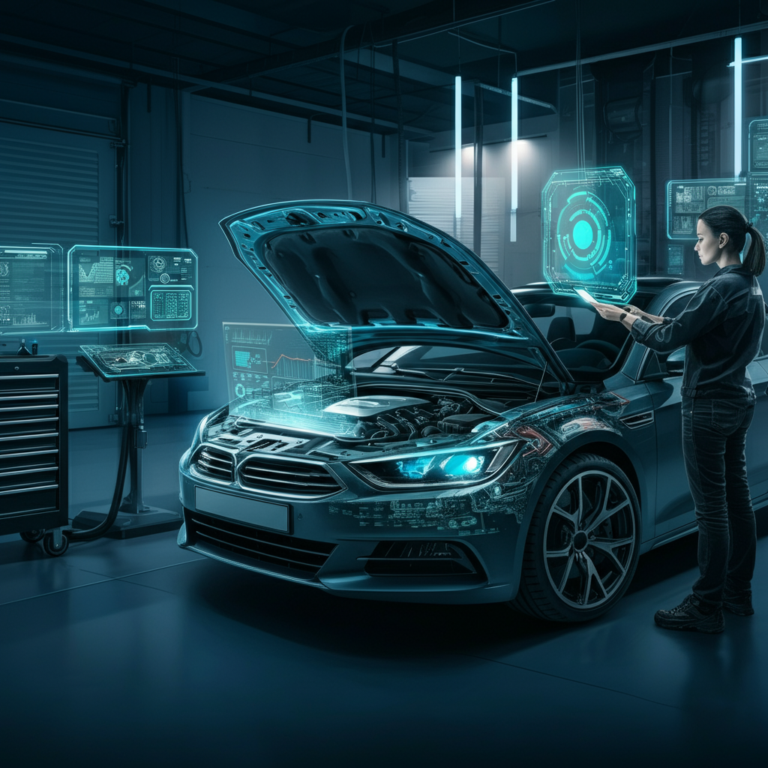Modern cars are more than just machines—they’re incredibly smart, loaded with tech that a few decades ago seemed unimaginable. A crucial part of that technological leap is the advent of vehicle diagnostics, accessed via car computers, which constantly monitor and report on your car’s condition. From improving performance to saving you costly repairs, these systems have revolutionized how we interact with and maintain our vehicles.
But, when it comes to the term “Long Island Checks” on car computers, what does it mean? And who stands out as the leading player in this field of diagnostics? Join us as we explore the rise of Long Island Checks, their significance, and the car computer systems that have truly “won.”
What Are Long Island Checks?
“Long Island Checks” in the context of car diagnostics refers to thorough inspections performed via a car’s onboard computer systems. Think of them as medical check-ups, but for cars—detecting issues before they turn into major problems and evaluating overall performance.
Long Island Checks are particularly significant because they leverage modern vehicle diagnostics to extend the life of your car and ensure smoother, safer rides. Whether it’s monitoring your engine’s health, tracking fuel efficiency, or checking tire pressure, Long Island Checks make managing your vehicle smarter and more efficient.
Who Won the Race?
Not all car computer systems are created equal. Here’s a breakdown of some standout diagnostic systems, evaluated on three important factors—accuracy, user-friendliness, and affordability.
Top Contender #1 – OBD2 Scanners
The go-to tech for most car enthusiasts, OBD2 scanners provide comprehensive diagnostic capabilities. These devices connect directly to your car’s computer and offer real-time data.
- Accuracy: High—OBD2 scanners provide detailed troubleshooting codes (DTCs) that pinpoint specific issues.
- User-Friendliness: Moderate—ideal for tech-savvy drivers, but may feel overwhelming to beginners.
- Affordability: Widely available options for under $100, with premium models also available for pros.
Top Contender #2 – BlueDriver Bluetooth Pro
For those wanting maximum control via their smartphones, BlueDriver offers a sleek, app-compatible diagnostic tool.
- Accuracy: Excellent—provides both trouble codes and repair reports sourced from certified mechanics.
- User-Friendliness: High—easy-to-use app interface, perfect for both casual and experienced users.
- Affordability: Higher price point—around $120, but worth the cost for its versatility.
Top Contender #3 – Dealer-Level Diagnostic Tools
The gold standard for diagnostics, dealer-level tools provide incredibly detailed scans of your car’s systems. However, they may come at a price.
- Accuracy: Exceptional—these tools can diagnose problems other systems might miss.
- User-Friendliness: Requires advanced technical knowledge or professional use.
- Affordability: Low for personal budgets—these tools are typically for workshops or professionals, with prices soaring into the thousands.
The Winner?
For everyday drivers and tech-savvy enthusiasts, OBD2 scanners like BlueDriver strike the ideal balance of accuracy, user-friendliness, and cost-effectiveness.
Benefits of Regular Long Island Checks
Wondering if Long Island Checks are worth the hype? Here’s what regular car diagnostics can do for you:
- Prevent Costly Repairs: Catching small issues early can save you thousands of dollars in repairs.
- Optimize Performance: Analyze your engine, tire pressure, and fuel efficiency to keep your car running at its best.
- Safety First: Ensure critical systems like brakes and airbags are operating correctly.
- Increase Resale Value: Maintenance records showcasing regular diagnostics can make a huge impact when selling your car.
How Tech-Savvy Drivers Can Leverage Long Island Checks
Long Island Checks are only as good as your ability to act on the data they provide. Here’s how you can step up your game as a tech-savvy driver:
- Understand Diagnostic Trouble Codes (DTCs)
Once a scanner identifies an issue, it provides a DTC. Use online resources or your vehicle’s manual to decipher what each code means.
- Track Trends Over Time
Invest in a scanner with data storage or app connectivity. Keeping historical records of diagnostics can help identify patterns that emerge in your car’s performance.
- Learn Basic DIY Repairs
Knowledge is power. If a Long Island Check signals a minor issue, you may be able to fix it at home instead of heading to the mechanic.
- Stay Updated with Software
Car computers often run on software that can be updated. Make sure you’re running the latest version to ensure optimal functionality.
- Consult a Pro When Needed
Some issues require a professional touch. Don’t hesitate to involve your trusted mechanic for more complicated problems.
The Future of Car Computer Technology
Car diagnostics are rapidly evolving, with many automakers integrating AI and cloud computing. Here’s what the future may hold for Long Island Checks and car computers:
- Real-Time Alerts
AI-powered diagnostics will allow cars to provide real-time insights, alerting drivers about critical issues the moment they arise.
- Predictive Maintenance
Using historical and real-time data, future systems could predict when parts will fail, allowing for proactive maintenance.
- Enhanced Connectivity
Connected cars may leverage cloud-based platforms for diagnostics, enabling seamless integration with mechanics and dealerships.
The result? Driving smarter, not harder, with high-tech tools making maintenance effortless.
Keep Your Car in Top Shape
Long Island Checks embody the future of responsible car ownership. By understanding and utilizing vehicle diagnostics, drivers can enjoy smoother rides, fewer breakdowns, and greater efficiency on the road.
Whether you’re a car enthusiast or just someone who values reliability, investing in diagnostic tools is worth every penny. Stay informed, stay proactive, and watch your vehicle repay you with exceptional performance and longevity.
